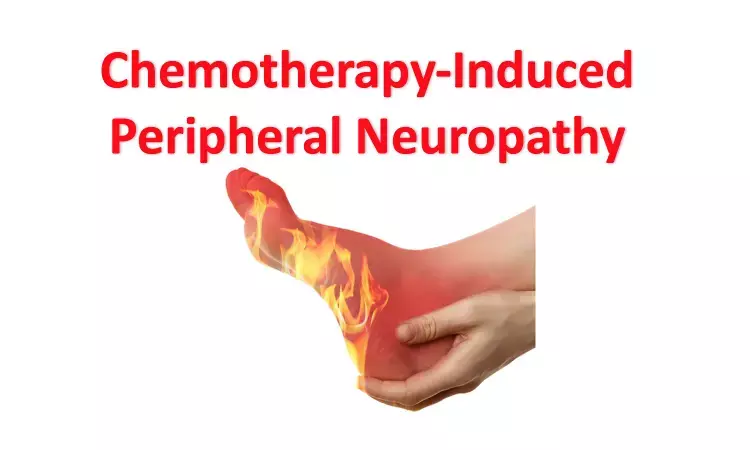- Home
- Medical news & Guidelines
- Anesthesiology
- Cardiology and CTVS
- Critical Care
- Dentistry
- Dermatology
- Diabetes and Endocrinology
- ENT
- Gastroenterology
- Medicine
- Nephrology
- Neurology
- Obstretics-Gynaecology
- Oncology
- Ophthalmology
- Orthopaedics
- Pediatrics-Neonatology
- Psychiatry
- Pulmonology
- Radiology
- Surgery
- Urology
- Laboratory Medicine
- Diet
- Nursing
- Paramedical
- Physiotherapy
- Health news
- Fact Check
- Bone Health Fact Check
- Brain Health Fact Check
- Cancer Related Fact Check
- Child Care Fact Check
- Dental and oral health fact check
- Diabetes and metabolic health fact check
- Diet and Nutrition Fact Check
- Eye and ENT Care Fact Check
- Fitness fact check
- Gut health fact check
- Heart health fact check
- Kidney health fact check
- Medical education fact check
- Men's health fact check
- Respiratory fact check
- Skin and hair care fact check
- Vaccine and Immunization fact check
- Women's health fact check
- AYUSH
- State News
- Andaman and Nicobar Islands
- Andhra Pradesh
- Arunachal Pradesh
- Assam
- Bihar
- Chandigarh
- Chattisgarh
- Dadra and Nagar Haveli
- Daman and Diu
- Delhi
- Goa
- Gujarat
- Haryana
- Himachal Pradesh
- Jammu & Kashmir
- Jharkhand
- Karnataka
- Kerala
- Ladakh
- Lakshadweep
- Madhya Pradesh
- Maharashtra
- Manipur
- Meghalaya
- Mizoram
- Nagaland
- Odisha
- Puducherry
- Punjab
- Rajasthan
- Sikkim
- Tamil Nadu
- Telangana
- Tripura
- Uttar Pradesh
- Uttrakhand
- West Bengal
- Medical Education
- Industry
Managing Chemotherapy-Induced Peripheral Neuropathy in Adult Cancers Survivors: ASCO guidelines

American Society of Clinical Oncology has released new guidelines for Prevention and Management of Chemotherapy-Induced Peripheral Neuropathy in Survivors of Adult Cancers.
The new guidelines have been published in the Journal of Clinical Oncology.
Chemotherapy-induced peripheral neuropathy can markedly affect the quality of life (QOL) of patients. In addition, it may be detrimental to their cancer outcomes, as it may limit the amount of chemotherapy that clinicians can give.
The purpose of this guideline update is to systematically review new evidence reported in the literature since the original guideline was published, compare outcomes among trials, and provide updated guidance on the effectiveness of prevention and treatment options for CIPN in adults with a history of cancer.
Updated Recommendations
The following recommendations are evidence based, informed by randomized trials, and guided by clinical experience. The recommendations were developed by a multidisciplinary group of experts.
Prevention of chemotherapy-induced peripheral neuropathy.
1.1 Clinicians should assess the risks and benefits of agents known to cause CIPN among patients with underlying neuropathy and with conditions that predispose to neuropathy such as diabetes and/or a family or personal history of hereditary neuropathy (Type of recommendation: Informal consensus, benefits outweigh harms; Evidence quality: low; Strength of recommendation: moderate).
1.2 Clinicians should not offer, and should discourage use of, acetyl-l-carnitine for the prevention of CIPN in patients with cancer (Type of recommendation: evidence based, harms outweigh benefits; Evidence quality: high; Strength of recommendation: strong).
1.3 Outside the context of a clinical trial, no recommendations can be made on the use of the following interventions for the prevention of CIPN:
Acupuncture
Cryotherapy
Compression therapy
Exercise therapy
Ganglioside-monosialic acid (GM-1)
(Type of recommendation: no recommendation; Evidence quality: low; Strength of recommendation: not applicable).
Note: While preliminary evidence suggests a potential for benefit from these interventions, larger sample–sized definitive studies are needed to confirm efficacy and clarify risks.
1.4 Clinicians should not offer the following agents for the prevention of CIPN to patients with cancer undergoing treatment with neurotoxic agents:
All-trans retinoic acid
Amifostine
Amitriptyline
Calcium magnesium
Calmangafodipir
Cannabinoids
Carbamazepine
l-carnosine
Diethyldithiocarbamate (DDTC)
Gabapentin/pregabalin
Glutamate
Glutathione (GSH) for patients receiving paclitaxel/carboplatin chemotherapy
Goshajinkigan (GJG)
Metformin
Minocycline
N-acetylcysteine
Nimodipine
Omega-3 fatty acids
Org 2766
Oxcarbazepine
Recombinant human leukemia inhibitory factor
Venlafaxine
Vitamin B
Vitamin E
(Type of recommendation: evidence based, no benefits; Evidence quality: intermediate; Strength of recommendation: moderate).
Treatment of chemotherapy-induced peripheral neuropathy that develops while patients are receiving neurotoxic chemotherapy.
2.1 Clinicians should assess, and discuss with patients, the appropriateness of dose delaying, dose reduction, or stopping chemotherapy (or substituting with agents that do not cause CIPN) in patients who develop intolerable neuropathy and/or functional nerve impairment (Type of recommendation: informal consensus, benefits outweigh harms; Evidence quality: low; Strength of recommendation: moderate).
Treatment of chemotherapy-induced peripheral neuropathy for patients who have completed neurotoxic chemotherapy.
3.1 For patients with cancer experiencing painful CIPN, clinicians may offer duloxetine (Type of recommendation: evidence based, benefits equal harms; Evidence quality: intermediate; Strength of recommendation: moderate).
3.2 Outside the context of a clinical trial, no recommendations can be made on the use of the following interventions for the treatment of CIPN:
Exercise therapy
Acupuncture
Scrambler therapy
Gabapentin/pregabalin
Topical gel treatment containing baclofen, amitriptyline HCL, plus/minus ketamine
Tricyclic antidepressants
Oral cannabinoids
ASCO believes that cancer clinical trials are vital to inform medical decisions and improve cancer care, and that all patients should have the opportunity to participate.
The identified data reconfirmed that no agents are recommended for the prevention of CIPN. The use of acetyl-l-carnitine for the prevention of CIPN in patients with cancer should be discouraged. Furthermore, clinicians should assess the appropriateness of dose delaying, dose reduction, substitutions, or stopping chemotherapy in patients who develop intolerable neuropathy and/or functional impairment. Duloxetine is the only agent that has appropriate evidence to support its use for patients with established painful CIPN. Nonetheless, the amount of benefit from duloxetine is limited.
For further reference log on to:
Dr Kamal Kant Kohli-MBBS, DTCD- a chest specialist with more than 30 years of practice and a flair for writing clinical articles, Dr Kamal Kant Kohli joined Medical Dialogues as a Chief Editor of Medical News. Besides writing articles, as an editor, he proofreads and verifies all the medical content published on Medical Dialogues including those coming from journals, studies,medical conferences,guidelines etc. Email: drkohli@medicaldialogues.in. Contact no. 011-43720751


